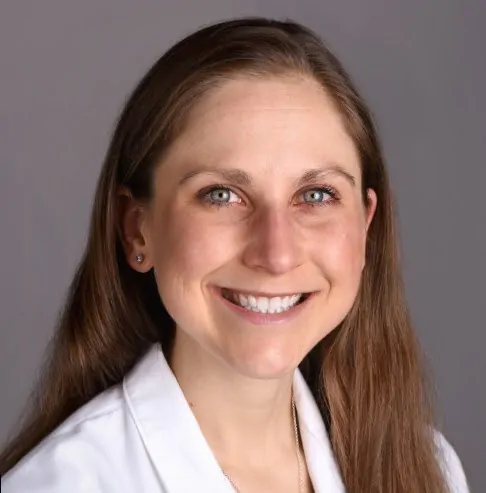
In this article, Dr. Rigert discusses her surgical residency journey, the effect of chronic sleep deprivation, the arrival fallacy, and giving yourself permission to pivot your career if Plan A isn’t working out. She also reminds us of the importance of getting professional help and that no career is worth your life.
Permission to pivot released me from feeling trapped. Permission to pivot freed my mind to wonder- what if there are alternatives?
In 2013, I was commissioned into the Air Force, selected to become an Oral and Maxillofacial Surgeon and would soon embark on my residency journey to get there. I was stoked as I finally felt I was living the path I had worked so hard to craft out for myself. Pinch me.
Up until this point, my educational path was linear. I committed to dental school during my first year in undergrad after I was accepted into a fast track 3:4 program which meant that I would complete 3 years of undergrad followed by 4 years of dental school. At age 18, I had mentally committed to a career trajectory for the rest of my life.
I stayed in dentistry thinking that I would be happier when I was in OMFS residency and the Air Force.... an illusion commonly referred to as the "arrival fallacy."
As I entered dental school, I would start to feel twinges of self-doubt. I began to question the career trajectory, and I was reassured that it was likely my self-confidence talking. I could not argue with that, since my hyper-critical, perfectionistic self-talk certainly led to reduced confidence and heightened distress that was pervasive in many areas of my life.
I continued dental school, and I found myself attracted to Oral and Maxillofacial Surgery (OMFS). I loved the ability to advance my medical training, and I envisioned the life changing surgeries that I would be able to perform for patients.
I stayed in dentistry thinking that I would be happier when I was in OMFS residency and the Air Force…. an illusion commonly referred to as the “arrival fallacy.”
After dental school, I commissioned into the Air Force and moved to TX. I still remember receiving the phone call that I would be moving to TX while I stood outside the dental school in order to get better cell reception. I was looking at the snow on a cold winter day in IL, and as I heard the location for my next duty station, I was filled with joy about the prospects of living in a state with warm weather year round. My hard work was finally paying off, I thought, and my whole body was flooded with excitement.
However, the tides would turn. During my time in TX, I rotated as a “subintern” in the Air Force OMFS residency in preparation for my future residency. Shortly after, I developed deep depression. I was beginning to realize the career path I had worked so hard to obtain was likely not the path for me.
I met with members of the Air Force OMFS board to discuss my doubts, and we agreed that maybe my civilian program would be a better fit for me. Maybe it was the program, and not the career. Maybe it’ll be better when…
The arrival fallacy would continue. I thought- maybe it will be better when I am in my own program that I had selected through the Match process and no longer a “subintern.” As I embarked on my residency journey in my amazing program, it would be solidified- it wasn’t the program. It was the career.
What did I miss when I chose this path? What I had not factored into my decision to pursue surgery was just how much the sleep deprivation would impact my mental wellbeing. On days I was able to rest, I felt I could keep going. I can be a great surgeon- I’ve got this! However, on days where I had been on call, no matter how much I tried to give myself pep talks, my mind spiraled into darkness.
I fell into a deeper depression, and I felt trapped. I did not want to admit my inadequacies and face the guilt, shame, and embarrassment that I had associated with quitting. Frankly, at that time, I would have rather died than raise my flag in defeat.
With that in mind, I thought I had two options- I could either continue residency or end my life. I could not think of an alternative option at that time.
Between the development of severe depression, the pressures of making a misstep that would end my medical/dental career, and the aversion to the feelings that I had associated with being a “quitter,” I could not see that there were so many other options.
Thankfully, I had an amazing Psychologist who would challenge my mindset, keep me safe, and support me through decisions that would both save my life and change the trajectory in a way that has been a much better fit for me.
Thankfully, I had an amazing Psychologist who would challenge my mindset, keep me safe, and support me through decisions that would both save my life and change the trajectory in a way that has been a much better fit for me. Thankfully, I was surrounded by individuals in my program and medical school who saw me as a person first and were devoted to making sure I felt compassion and not guilt for considering a career pivot. I am extremely grateful for the individuals who gave me permission to pivot when I was committed to trying to force through the grind. I am extremely grateful for the individuals who helped me see options C-Z when I was stuck perseverating on A and B.
Permission to pivot released me from feeling trapped. Permission to pivot freed my mind to wonder- what if there are alternatives- not only in my career but in how I frame my mindset around the decision to change careers? I owe my life to those who advocated for me to give myself permission to consider alternatives before I eventually allowed myself permission to pivot. I feel extremely fortunate that I was around supportive people who took the wheel from me, helping me to navigate life until I could get back into the driver’s seat… and I am forever grateful.
Valuable lessons learned- if you are stuck between options A and B, and neither seem ideal – step back, and consider C-Z. And if those aren’t enough, then look into another alphabet. There are always more options than you think. Sometimes, we need to give ourselves permission to pivot.
Also: If you are experiencing symptoms of depression and/or burnout, please ask for help. Professional therapy and a supportive community were essential components of my recovery journey. I am amazed at how the brain may think when not okay. Please surround yourself with supportive people who can help you see when the world seems dark and who can grab the wheel when you need to rest.
Remember, always- Nothing in your career is more important than your life. Nothing.
Revised from original publication on KevinMD
Check out my TEDx talk on How to Find Your Self-Worth and Own Your Life here.
If you or someone you know is in a suicidal crisis or emotional distress, please seek help immediately:
American Foundation for Suicide Prevention: Call 800-273-8255 or text TALK to 741741
National Suicide Prevention Lifeline is available 24/7: 800-273-8255
Physician Support Line by psychiatrists: 888-409-0141
